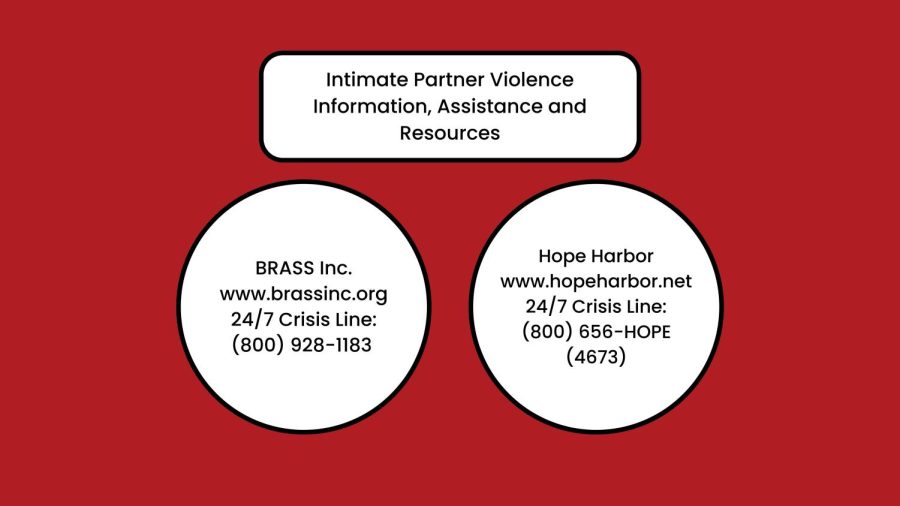Submitted: Let’s be real about It
March 6, 2023
Editor’s Note: This submission has been published as a companion to the newest issue of the College Heights Herald, titled “Let’s talk about sex — or not,” now available around Western Kentucky University’s campus and available online in the coming weeks.
Let’s be real. Intimate partner violence happens—a lot. All genders experience intimate partner violence, and marginalized groups experience violence at even higher levels. According to the CDC, one in three individuals who identify as women and one in four individuals who identify as men report experiencing violence at the hands of a current or previous intimate partner at some time in their lives. That is tough, considering not all abuse is reported. We don’t always talk about “it”, but “it” is there, and “its” effects (injuries, PTSD, depression, and substance use, among others) can linger long after the relationship ends or the last bruise fades, so it is essential to know what options are available to those navigating “it.”
But what exactly is “it?” Intimate partner violence, or IPV, is a type of power-based violence occurring between members of a current or previous romantic or sexual relationship that uses power and control to maintain the relationship. This can include physical or sexual violence, psychological aggression and/or stalking. Shame, guilt, embarrassment and fear may keep people from talking about “it,” but that does not mean someone struggling with intimate partner violence must struggle alone. Sometimes the first step in breaking the cycle of violence may simply be speaking the experience aloud. Talking about “it” helps end the stigma around being a victim survivor, which is often true for being the target of any assault. We don’t have to avoid the tough stuff, so let’s get into “it.”
You’ve probably heard the term “red flags” on social media, and with good reason. Sharing red flags is crucial because it is essential to recognize unsafe behaviors that could signal more trouble in the future. What are some red flags to look for in a partner’s behavior? On the surface, “it” might sound cute to have a partner who wants to spend all of their time with you, texting and calling repeatedly (but freaking out if you don’t respond immediately), wanting to know where you are and who you are with all the time, and/or getting jealous of anyone else you spend time with. You might think they really like you. However, those possessive behaviors may worsen over time and may lead to your partner isolating you from your friends, family, and acquaintances so that you only have them to rely on. Another red flag behavior is failure or refusal to honor your boundaries. If you have asked them not to show up at your workplace, not to call you after 11 p.m., or not to touch you in a specific way and they ignore your requests, that is a huge RED FLAG. If your partner criticizes you, they could be just being playful, but over time, hearing how unattractive you are, how dumb your choices are and/or how you will never be enough can make you start to believe it.
Conversely, they may love bomb you, too. This might look like them telling you repeatedly that you are the best thing that ever happened to them, how much they adore you, how perfect you are and how they will die if you ever leave them. These are also red flags.
Finally, any sign of aggression toward you, other people, or animals is a red flag. If they shove, slap, punch or use any form of physical contact to hurt or control you without your consent, that indicates that violence may escalate, leading to more dangerous forms of contact, such as strangulation or weapon use in the future.
That is an extensive list of red flags that can lead to a survivor feeling isolated from family and friends, feeling guilty or intimidated for enforcing boundaries that make them feel safe, suffering from low self-esteem, doubting their confidence to exist without that partner and feeling guilty for even considering leaving because “they just love me so much they can’t control themselves.” Most of the time IPV perpetrators are very much in control. They do all of these things to make sure of.
It is best to avoid victim-blaming or asking, “why don’t you just leave?” Focusing on why a survivor chose to leave or stay instead of asking why the abuser abused often causes survivors to feel even more guilt and embarrassment surrounding the relationship and, while possibly well-intentioned, probably will not help the situation.
Instead, if someone shares that their partner has made them feel unsafe in some way, offer to help them plan for their safety by perhaps having someone walk them to their car at night or helping them find alternative spots to hang out so they are less likely to run into their abuser. You can also help them choose a keyword so that, for example, if the person calls you to talk about their “pink hair tie,” you know they are in danger, and you should call 911 for them.
The WKU Police Department, Bowling Green Police Department, and Warren County Sheriff’s Office take IPV very seriously and can help someone out of immediate danger, as well as partner with other agencies such as Barren River Area Safe Space, Inc. for domestic violence advocacy or Hope Harbor for sexual assault advocacy. BRASS supports survivors through safety planning, emergency shelter, court advocacy, and housing assistance and can help through the protective order processes, providing potentially immediate safety options for survivors. Hope Harbor offers counseling, legal accompaniment, and emergency advocacy for survivors of sexual assault. Both agencies have a 24/7 crisis line staffed by trained advocates who can help people experiencing violence plan for their in-the-moment safety and for long-term healing and freedom from violence. All services provided by both agencies are free and confidential and are created to welcome and serve ALL survivors.
Cindy Mace is a Certified Domestic Violence Advocate and Operations Manager at BRASS, Inc.
If you would like to submit a reaction to a piece, Letter to the Editor or other submission, please send it to commentary editor Price Wilborn at [email protected] or [email protected].














